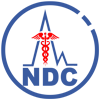OVERVIEW:
CT Coronary Calcium Score
A CT coronary calcium score is a CT scan that measures the amount of calcium in the heart’s arteries, indicating plaque buildup (atherosclerosis) and risk for a heart attack or other cardiovascular events The test involves a table sliding into a CT scanner, and images are reconstructed by a computer to provide diagnostic information for various heart conditions.
What does an CT CORONARY Calcium Score diagnose?
What Does the Score Mean?
| Table . Interpretation of Coronary CT Calcium Score | ||
| Calcium score | Interpretation | Risk of myocardial infarction/stroke at 10 years |
| 0 | Very low risk | <1% |
| 1–100 | Low risk | <10% |
| 101–400 | Moderate risk | 10–20% |
| 101–400 and >75th percentile | Moderately high risk | 15–20% |
| >400 | High risk | >20% |
- Score of 0: No evidence of plaque buildup.
- 1-100: Mild plaque, indicating mild CAD.
- 101-400: Moderate plaque, indicating moderate CAD and risk.
- Over 400: High accumulation of plaque, indicating severe CAD and a very high risk of a heart attack.
Test Details
Who performs an CT Coronary Calcium Score ?
CT Coronary Calcium Score is performed by a radiology technologist, who operates the scanner and manages image acquisition, while a radiologist or cardiologist specialized in cardiac imaging interprets the results and provides the diagnosis.
What types of Cardiac scanners are used for CT Coronary Calcium Score?
Types of Cardiac CT Scanners
Multi-Detector CT (MDCT) Scanners
Most common for cardiac CT.
Uses multiple rows of detectors (e.g., 64-slice, 128-slice, 256-slice, 320-slice).
Higher slice numbers = faster imaging + better detail.
Dual-Source CT Scanners
Have two X-ray tubes and detectors.
Very fast, excellent for patients with high or irregular heart rates.
Provides high temporal resolution.
What are the preparation for CT Coronary Calcium Score ?
A healthcare professional tells you how to prepare for a CT coronary angiogram. Driving yourself to and from the test should be OK.
Food and Medicines :
Usually, a CT coronary angiogram requires not eating anything for at least 6 hours before the test. Drinking water is OK. Don’t have drinks that contain caffeine 12 hours before. Caffeine can raise the heart rate, making it hard to get clear pictures of the heart.
Tell your healthcare team about the medicines that you take. You may be asked not to take a certain medicine before the test.
Clothing and personal items:
The procedure requires removing jewelry, glasses and clothing above the waist. You’ll be asked to change into a hospital gown.
What happens during a CT Coronary Calcium Score?
You will be asked to change into a gown before your examination and the radiographer will explain exactly what will happen during your procedure. It may vary slightly from what we describe below, so do not worry.
You will have electrocardiograph (ECG) patches attached to your chest so we can monitor your heart rate during the scan. This is one of the key parts of imaging the heart as it is constantly moving while we take pictures of it.
A Computed Tomography (CT) scanner is a doughnut-shaped with a bed passing through the middle. You will be asked to lie on the bed as still as you can. The bed will move through the scanner to acquire your images and you will be asked to hold your breath for up to 10 seconds. This helps us take the best possible pictures of your heart.
You lie on a long table that slides through a short, tunnel-like machine called a CT scanner. If you’re not comfortable in closed spaces, ask your healthcare professional about medicine to help you relax. Do this before the day of your test.
During the scan you need to stay still and hold your breath as directed. Movement can cause blurry images.
A healthcare professional controls the CT machine from a room that’s separated from your exam room by a glass window. An intercom system lets you and the healthcare professional talk to each other.
The scanning parts of the test take as few as five seconds. But the whole process may take longer.
What happens after a CT Coronary Calcium Score ?
After your CT coronary calcium score is done, you usually can return to your daily activities. You should be able to drive yourself home.
What are the benefits of a CT Coronary Calcium Score?
Non-invasive – No surgery or catheter, just a scan.
Quick and accurate – Gives clear results within minutes.
Treatment guidance – Helps doctors decide on medicines, stents, or surgery.
Risk check – Identifies people at higher risk of heart attack or stroke.
Care at North City Diagnostic
If you have concerns about your Heart’s Condition or Risk of Cardiac Attack, you need a team of experts you can trust. Our Cardiologists and Radiologists at North City can help you with CT Coronary Calcium Score.

